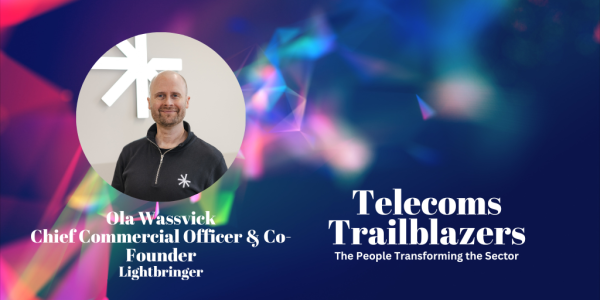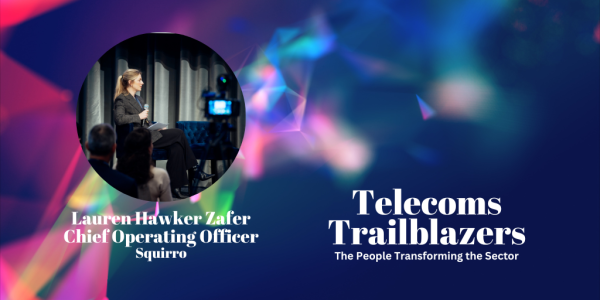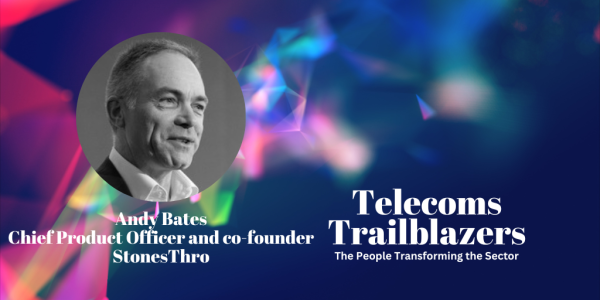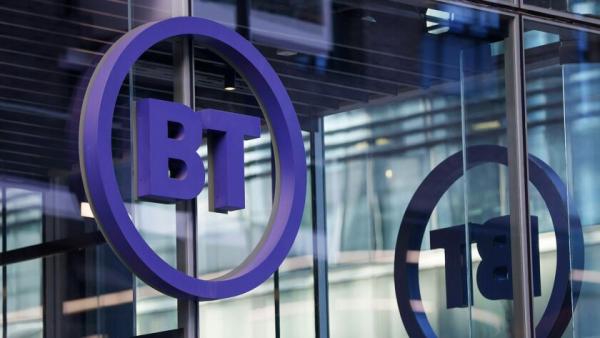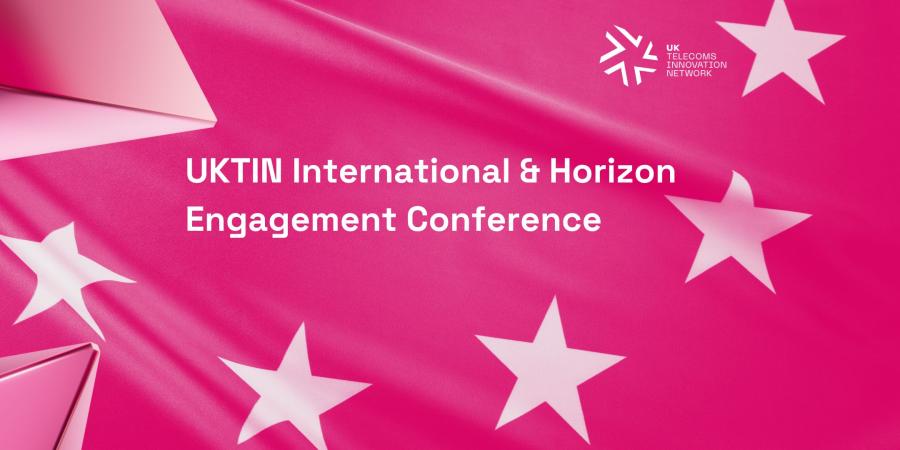
UKTIN hosted the International and Horizon Engagement Conference at the Royal Academy of Engineering in London on Wednesday the 4th of December. Attendees heard from senior government officials about the strategic importance of the international innovation programme, and industry professionals and association bodies discussed the potential for opportunities, including what the UK offers, and provided food for thought on how we drive inward investment into the UK.
Ian Smith, Head of UKTIN opened the event by describing Horizon Europe – the EU's key funding programme for research and innovation – as “a vision for the future”. “By re-entering the programme, the UK has reaffirmed its commitment to the research community,” he said.
Smith continued: “Horizon provides access to funding for many research projects, grants and collaboration opportunities. It is vital for addressing challenges such as climate change and will enhance our innovation ecosystem. Horizon will also generate economic benefits: every euro invested has a return of around eleven euros. Imagine the UK a decade from now… imagine a fostered innovation technological ecosystem that ensures we shine big.”
A view from the UK Government
Catherine Page, Deputy Director of future telecoms technology policy at DSIT said her department is developing policy and shaping programmes to provide the best digital infrastructure of today and shape the best digital infrastructure of tomorrow. However, she explained, the UK cannot succeed in developing next-generation networks alone: “I am so delighted to have so many come here today and collaborate to make this happen between the UK and the EU.”
“Why should the UK invest in telecoms innovation?” Page asked. “High-quality digital infrastructure is important and everyone is looking for growth. It is a key part of our social fabric and inclusion. We can’t realise the country’s potential without it. Telecoms ensure better public services and positively impact people’s lives. It is crucial for collective security and resilience.”
She continued: “Horizon will allow us to tackle challenges alongside our European counterparts. Reassociating ourselves with Horizon is a part of resetting our relationship with Europe. From a UK Government perspective, we will offer help where we can: DSIT aims to raise awareness of Horizon programmes and provide support and guidance on the application process. The UK Government wants a thriving telecoms ecosystem with researchers and businesses. We believe in driving growth, connecting our societies and strengthening resilience in our networks.”
Opportunities for the UK
Dan Warren, Director of Advanced Network Research at Samsung R&D Institute United Kingdom (SRUK) discussed the opportunities with Horizon and Associated European Programmes. Before Brexit, the UK Government was a major contributor and beneficiary of Horizon programmes. “The purpose of today is to regain momentum. Applying for the programme can be frustrating but once you’re funded, you can attract talent across Europe into the UK - and through the funding, we can retain talent in the UK too,” Warren said.
The main telecoms programme is the Smart Network and Services Joint Undertaking (SNS-JU) and relates to Chips JU, High-Performance Computing, Photonics Partnership, CCAM, AI, Data, Robotics and Europe’s Rail JU. The combination of industry and academia has made the topics highly relevant, providing cutting-edge technology with business reliance.
Why apply?
- High funding rates – industrial partners will receive 90% (high TRL 70%) and SMEs and academia 100%
- Expansive range of partners
- Longer duration projects (typically 30-36 months)
- To attract and retain talent
Warren called on attendees to “network like crazy” and find the consortium partners that make the opportunity work for them.
Current Horizon plans and opportunities
Dr Alexandros Kaloxylos, Executive Director at the 6G Smart Networks and Services Industry Association (6G-IA) introduced his non-profit organisation and encouraged attendees to join and participate, and through his presentation, it became clear there are plenty of benefits to doing so. The 6G-IA has created over 40 publicly available white papers and has over 360 members, including main vendors, European operators, verticals, SMEs, top universities and research centres.
Kaloxylos also pointed to The Smart Networks Services, a £1.8 billion funded research program for next-generation networks. “There is a misconception that this is a closed group with access to public money. This isn't true. We are always open to collaboration,” he said. (SNS is an industry-driven partnership but includes academia and RTOs.)
Kaloxylos emphasised that “connectivity connects all of us. We need to have global standards, work with like-minded individuals and form partnerships with vertical industries.” He continued: “However, the US controls the cloud right now. If we want to secure privacy, we must create our own.”
Building a successful consortium with European partners
Kaloxylos chaired a panel which discussed tips and tricks for writing proposals and securing funding
David Kennedy, Director at Eurescom, said: “The brokerage tool on the SNS website allows you to post project ideas for others to view, which can help you find a consortium. An existing project may be a good fit and could take your project on. Please explore opportunities and find the niche that suits you!”
He added: “As for the proposal, you will lose points for a lack of clarity. Sorry to be brutal but it is a very competitive process. You need to be very concentrated on this. There is nothing to stop anyone registering as an evaluator and you can be paid a daily rate to read proposals. There is no better way to gain experience. The major event for the SNS community is the EU SNC conference in June next year. If you want to be an active participant, you should go. Maybe even consider submitting a paper. There is still time.”
Raman Casellas, Research Director at CTTC, commented: “How do you choose your consortium? Check what is requested and try to have the whole value chain in your project. What is being asked? Who can corroborate that? Who would be a good partner? Try to find the balance. It has to be a balanced value chain. The time is now. You can't wait until March to start the proposal. Do not underestimate the time it takes to write a successful proposal. It takes months.”
Segri Figuerloa, Director at i2Cat, said: “The most important thing is that you are passionate about technology and research. There must be commitment and trust. The community offers a range of initiatives but we want to identify the challenges. This is an opportunity to promote yourself and the technology you have, but it is becoming increasingly competitive. It needs to be the best proposal ever.”
Dan Kilper, Director of CONNECT and Professor of Future Communication Networks at Trinity College Dublin, continued: “I’ve seen some excellent technical proposals that didn’t review well because they weren’t communicated well. What is the main idea? What is the impact? This is so critical. Make sure the objectives align with the impact but do not make the proposal too dense or detailed. Lay things out very clearly – and identify partners who will be beneficial. You need to decide who will take the lead.”
The strength and depth of UK R&D innovation
Prof. Dimitra Simeonidou from the University of Bristol chaired a panel that highlighted the importance of collaboration and scaling up
Prof Harald Haas, the Van Eck Professor of Engineering at the University of Cambridge, said: “There are capabilities in the EU that we need to access. We also have very highly skilled people in the EU and this collaboration remains important. The UK has not been standing still and we should integrate our 6G programme into Europe. From a research perspective, leaving the EU was an awful period. We need to reintegrate and take on security and diversification together. Let’s combine research and then develop our own capabilities. I am so pleased we have rejoined Horizon Europe.”
Anvar Tukmanov, BT, Senior Research Manager for Wireless Transmission, added: “As operators, we are looking for impact. When we evaluate, we look at the return on investment. EU or UK funding enables us to go beyond what we usually fund internally. For example, the REASON project demonstrated the tangible benefits of changing requirements to the standards body. Funding should be a catalyst for us to engage meaningfully. We should focus on opportunities that lead to specification and industry change, supported by the UK and private investment. Scalability isn’t just an objective for SMEs but big companies too.”
Mark Barrett, Chief Strategy Officer at Blu Wireless, added: “The UK has lots to offer Europe. We kickstarted several 5G Testbeds & Trials programmes, allowing us to continue our work as a part of our scale-up plan. In addition, we collaborated with the US and Japan. We reshifted our priorities.”
Simon Fletcher, CEO at Real Wireless, said: “European projects can stimulate overseas investment. When we were out of Horizon Europe, there were fewer commercial relationships to develop. There were follow-up projects that we were unable to bid for. The vertical sectors in the UK understand innovation and its importance but are perhaps struggling to connect with a wider ecosystem. Much of telecoms is about relationships. In the case of Real Wireless, for example, a lot of our staff are EU passport holders, which has helped us.”
Dritan Kaleshi, Director of 5G Technology at Digital Catapult, concluded: “European projects have shaped my career. Collaboration with peers in Europe is more important than ever before. We cannot ignore the opportunity to have scaled-up conversations with Europe - this offers a chance to strengthen and grow R&D. Telecoms is being prioritised in the UK in a way I haven’t seen before. It is needed, and it is bringing the community together.”
The day concluded with ample time for networking, where participants enthusiastically engaged directly with stakeholders and potential consortium partners.

